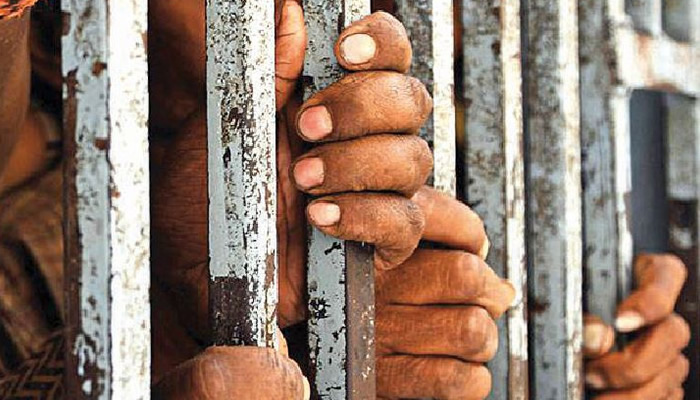The Nigerian Correctional Service (NCoS) faces a deepening crisis of overcrowding, with the number of awaiting-trial inmates soaring to over 53,000 by June 2025. This marks a substantial increase from the 48,900 recorded in January of the same year and represents a significant portion of the total inmate population of 80,879. This surge in pre-trial detainees casts a long shadow over the Nigerian justice system, raising concerns about prolonged detention, human rights violations, and the overall efficiency of the judicial process. The increase contradicts the promises made earlier in the year by the Controller-General, Sylvester Nwakuche, to alleviate the strain on correctional facilities by streamlining the justice system.
The steady climb in the number of awaiting-trial inmates throughout the first half of 2025 paints a troubling picture. Following January’s figure of 48,900, the numbers rose to 52,771 in February and further escalated to 53,254 in March. A slight dip to 52,937 in April offered a brief respite, but the upward trend resumed, culminating in the June figure of 53,178. This persistent growth underscores the systemic challenges plaguing the Nigerian justice system and its impact on the already overburdened correctional facilities. The fluctuation in the numbers suggests a complex interplay of factors influencing the flow of individuals into and out of pre-trial detention, highlighting the need for a comprehensive and sustained approach to address the issue.
The NCoS attributes the persistently high number of awaiting-trial inmates to a confluence of factors, including delays in court proceedings, inadequate legal representation for many detainees, and a reliance on pre-trial detention even for minor offenses. The sheer volume of cases clogging the courts contributes significantly to the backlog, leaving many individuals languishing in pre-trial detention for extended periods, often exceeding the maximum sentence they would have received if convicted. This prolonged detention not only infringes on the rights of the accused but also exacerbates the overcrowding crisis in correctional facilities, stretching resources thin and creating an environment ripe for human rights abuses.
To combat this escalating crisis, the NCoS, under the leadership of Controller-General Sylvester Nwakuche, has pledged to engage with key stakeholders across the criminal justice spectrum. This collaborative approach aims to identify and address the root causes of the pre-trial detention problem. By working with law enforcement agencies, prosecutors, and the judiciary, the NCoS hopes to foster a more efficient and equitable system that prioritizes the swift processing of cases and minimizes the reliance on pre-trial detention. This collaborative effort represents a crucial step towards reforming the criminal justice system and ensuring that pre-trial detention is used only as a last resort, rather than a routine practice.
Central to the NCoS strategy is the promotion of non-custodial measures as alternatives to incarceration. These alternatives, including parole, probation, and community service, offer a more humane and cost-effective approach to managing offenders, particularly those accused of non-violent crimes. By diverting individuals away from the prison system, these measures can significantly reduce the strain on correctional facilities and allow resources to be focused on rehabilitation and reintegration efforts. Moreover, non-custodial measures can help to break the cycle of recidivism by providing offenders with the support and structure they need to successfully reintegrate into society.
The NCoS spokesperson, Abubakar Umar, emphasized the importance of collaboration among investigating, prosecutorial, and judicial authorities in implementing these reforms. By streamlining the judicial process, ensuring access to legal representation, and embracing non-custodial measures, the NCoS aims to reduce the influx of inmates into custodial centers and address the pressing issue of pre-trial detention. This concerted effort signifies a commitment to reforming the criminal justice system and upholding the rights of all individuals, regardless of their legal status. The success of these initiatives will depend on the sustained commitment of all stakeholders and the effective implementation of the proposed reforms. The ultimate goal is to create a more just and equitable system that protects the rights of the accused while ensuring public safety and promoting the rehabilitation of offenders.


